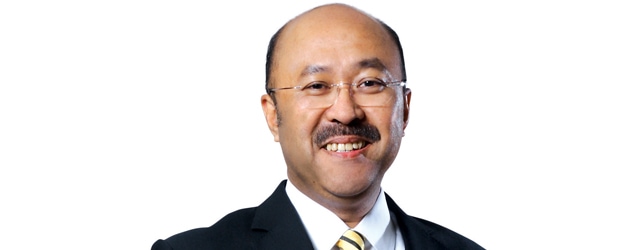Dato’ Mohamed Rafique, head of Maybank’s Islamic Banking Group and CEO of Maybank Islamic Berhad, explains how Islamic finance is contributing to the bank’s growth.

Global Finance: What is driving the success of Maybank Islamic?
Dato’ Mohamed Rafique: In 2010 the New House of Maybank was established with three key business pillars: community financial services, global banking and Etiqa Insurance/takaful. The business strategy in Malaysia (and in selected jurisdictions) is overlaid by an Islamic-inspired agenda, or “Islamic First” policy. Six years on, the Islamic First policy has translated into significant growth and market share for Maybank Islamic. The five-year growth for Maybank Islamic has been encouraging, with a compounded annual growth rate for the period for 2011 to 2016 of 23.4%, 18.7% and 13.3% for its financing, deposits and profit before tax respectively. Maybank Group Islamic Banking contributes more than 20% of Maybank Group’s PBT.
GF: Where do you see the most opportunities over the next year?
Rafique: We will continue to focus on high-quality assets and strategic asset management, and seek more stable and sustainable sources of funding. In 2016, we played a prominent role as an investment intermediary, embracing the very essence of Islamic finance’s equity and profit sharing contracts by structuring different products. We intensified our efforts to promote Islamic Social Finance and Environmental, Social and Corporate Governance (ESG) activities through our zakat and waqf programs and other initiatives and will continue to pursue this.
GF: Outside of Malaysia, where is the bank looking to expand?
Rafique: To support our aspiration to become a global leader in Islamic finance, a strong link (either physical presence or landmark deals) in the identified Islamic growth areas is needed. We are looking at a focused approach to expansion and resource allocation, leveraging on our strength in our home markets (Malaysia, Singapore and Indonesia) to expand geographically. In these markets, we shall focus on domestic growth while drawing liquidity and funding from domestic and opportunistic markets.
GF: What are the prospects for the sukuk market for 2017?
Rafique: We anticipate more opportunities to penetrate other markets as demand for sukuk issuances is expected to remain healthy. We have a number of sukuk mandates in the pipeline and hope to maintain our position as the number one ringgit sukuk issuer this year. In regard to the sukuk market, the momentum is quite strong. As at 2016, 25 countries have issued sovereign sukuk and this is likely to increase, as more investors want to invest in shariah compliant instruments. We expect gross corporate bonds issuance (bonds and sukuk) of 75–85 billion Malaysian ringgit ($17 billion–$19.3 billion) this year with infrastructure and utilities sector expected to remain the largest issuance contributors with around 31 billion ringgit from infrastructure-driven government guaranteed sukuk from recurring issuers such as DanaInfra and Prasarana. Refinancing needs from banking and financial services sector issuers is expected to ramp up issuances. The construction sector experienced a record year in job awards in 2016, implying a need for continued funding for construction players. Internationally, we also expect the US dollar sukuk pipeline to remain strong, particularly for infrastructure financing.



